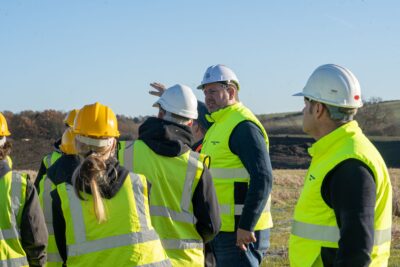Duration: 18 Months plus 3 months End Point Assessment.
- Individuals will need a GCSE 3/D in English and Maths or equivalent
- Learners will also have to attend learning and attempt the exams for functional skills level 2 in Maths and English prior to going through the gateway to end point assessment if they do not have an exemption at level 2 or equivalent.
- End Point Assessment (EPA)
- Knowledge test
- Skills test
- Professional review on portfolio of evidence
On a successful completion, apprentices will be eligible for the following job roles or further studies.
- A Level 3 Apprenticeship or similar qualification
- Contracted or permanent job within the industry
Workplace behaviours development
- Effective communication – oral, written, electronic, listening, body language and presentation.
- Customer service – develop customer relationships, build customer confidence, meet expectations and contribute to the development of an ongoing relationship with the organisation.
- Time management – use own time effectively to complete the work instructions to schedule and always be ready to work on time.
- Adaptability – be able to adjust to changes to the work instructions, be able to identify when specialist advice may be needed and when to advise of the need to change work instructions.
Skills and knowledge development
- Basic awareness of environmental and health hazards e.g. Japanese knotweed, asbestos.
- How to identify contaminated ground conditions and the procedures for working safely on it.
- The differences between modern and traditional construction methods and the physical and environmental factors when undertaking construction work and their potential impacts.
- Access, interpret and use drawings and specifications.
- Select and use basic setting out equipment including tape measures, levels, straight edges, lines and pins, boning rods and laser equipment under guidance of the supervisor.
- Transport and place, then compact and finish concrete to slabs/bases, footing oversights, paths, form slab edgings including positioning reinforcement and kerbs.
Off-the-job training
The apprentice needs to provide evidence of the learning they are receiving from the employer which is called Off the Job Learning. This needs to be a minimum of 6hrs per week. The training can include; onsite training they receive from a mentor, standard induction training and general day to day learning of new tasks.
It can form part of regular weekly sessions or be combined for larger blocks of time, depending on the approach that works best for the employer.
Month 1-4
- Theory units
- Practical activities
- Portfolio tasks
Month 5-8
- Theory units
- Practical activities
- Portfolio tasks
- Mock knowledge test
Month 9-11
- Revision activities
- Mock knowledge test
- Mock skills test
- Mock questioning
- Portfolio review
Month 12-18
- Preparation for EPA
- Revision activities
- Portfolio showcase
Months 18-21
- End Point Assessment
Delivery plan and apprentice progression
Throughout the apprenticeship, the apprentice is supported by their work-based tutor, employer mentor and class-based tutor to ensure that they are progressing at the right pace and developing the skills and knowledge expected.
Learners will also have to attend learning and attempt the exams for functional skills level 2 in Maths and English prior to going through the gateway to end point assessment if they do not have an exemption at level 2 or equivalent.
Career progression routes
- Labourer
- Ground Worker

Register your interest in applying for an apprenticeship
"*" indicates required fields
Chesterfield College Open Day
Thinking about studying at college? Come along to one of our Open Evenings to learn more about the many courses and apprenticeships we have to offer.

